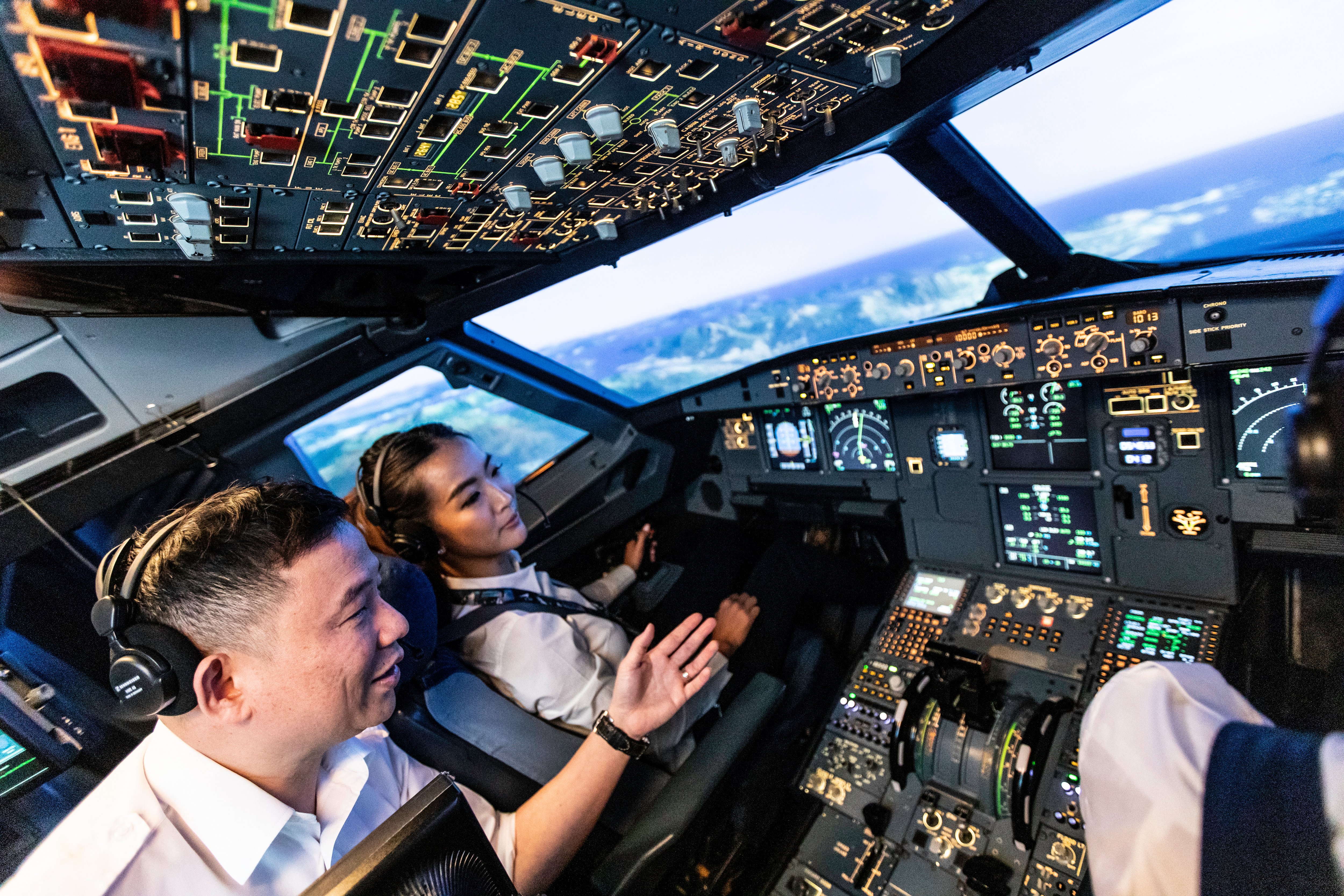Click Here to View This Page on Production Frontend
Click Here to Export Node Content
Click Here to View Printer-Friendly Version (Raw Backend)
Note: front-end display has links to styled print versions.
Content Node ID: 418928
Varon Vehicles has confirmed its determination to take a new approach to training pilots who will operate eVTOL aircraft in the commercial services the company intends to launch in several South American cities. Earlier this week, the Colombia-based company signed a memorandum of understanding with Paladin AI for software it says will shorten the time needed to train pilots, reducing costs for aircraft operators.
Montreal-based Paladin AI provides “data-driven” training tools to flight-simulator manufacturers, airlines, and training providers. It claims these support competency-based training that can be integrated with existing training processes and equipment.
The company says it taps machine learning and artificial intelligence “to dynamically learn the patterns of behavior indicative of pilot competence.” This approach is intended to allow the specific training needs of individual pilots to be accommodated.
Varon Vehicles is developing an operating concept for eVTOL services based on a network of vertiports connected via what it calls “virtual lanes” in low-altitude urban airspace. It intends to begin operations in cities such as Cartagena and Bogota in Colombia, as well as the Peruvian capital Lima and Santiago in Chile. These would include air taxi flights, but also operations such as cargo and emergency medical support. In January, Varon Vehicles announced a partnership with eVTOL aircraft developer Jaunt Air Mobility.
Company founder and CEO Felipe Varon argues that the people operating eVTOL aircraft, whom he calls "operators" rather than pilots, will require less training than traditional commercial aviation pilots, even though the services he aims to launch will be commercial. “They will have much lighter tasks in the air than traditional pilots,” he stated.
According to Varon, the partnership with Paladin AI will help to define and design training mechanisms for the “air vehicle operators” that he says companies like his will employ. “Our eVTOL air vehicle fleets will not be operated by pilots; they will require a new type of operator that will probably compare more to drone operators due to their high-level tasks,” he told FutureFlight.
However, as things stand, no major international aviation regulatory agency has indicated any willingness to relax or change required training levels for eVTOL aircraft pilots, and especially for those who will be engaged in commercial operations. Varon said that his company is already engaging with Latin American civil aviation authorities, starting with those in Colombia, to make the case for changing requirements. He acknowledged that this change may not be immediate and indicated that initial eVTOL operations may need to be conducted by “traditional” pilots.
When pressed as to how Varon Vehicles expects operators to be exempt from training requirements under existing Part 121 or 135 rules, the company pointed out that initial operations will likely not involve passenger-carrying flights, and are more likely to begin with freight services. “Note that we will not be sharing airspace with traditional aviation, we will be flying in segregated airspace linking our vertiports, all mostly in uncontrolled airspace as unmanned traffic management use cases, and we will not engage or use air traffic control or any of the existing traditional aviation systems,” he told FutureFlight. “Also our air vehicle fleets will not be winged, so they will not fly like airplanes in any point of the flight profile. We’re leveraging the concept of simplified vehicle operations.”
Agencies including FAA, NASA, EASA, and the Civil Aviation Administration of China are discussing concepts for varying degrees of autonomous aircraft operations, in which the role of the pilot would change, and potentially be eliminated altogether. However, for now, none of these agencies has published a definitive timeline and plan of action for making these changes.
According to Varon, the economic viability of the eVTOL aircraft operations his company is planning is predicated on the assumption that "vehicle operators" would not even need the most elementary private pilot’s license. That said, he stressed that early-stage operations, which he sees starting between 2023 and 2025, will likely involve fully trained pilots.
Established flight training providers, such as CAE and FlightSafety International, have started planning to support the crew requirements of eVTOL aircraft operators. They, too, have acknowledged the desirability of considering new approaches, while stressing that core skills and competence will need to be assured to support safe operations in the advanced air mobility sector.
Earlier this week, Brandon Robinson, CEO and cofounder of Canadian eVTOL aircraft developer Horizon Aircraft, said that to prevent accidents and fatalities, air taxi operators using the new models must have safety records that are equal to those in the existing commercial aviation sector. The former air force pilot warned that any accidents or breaches of safety in the early phase of advanced air mobility adoption could undermine the sector's potential by reducing consumer confidence and making regulatory approval difficult.
"There is much debate around the safety requirements of eVTOL aircraft, with some commentators, for example, saying they should be twice as safe as driving a car, or have safety records on a par with helicopters," Robinson commented. "The safety bar must be set much higher so that potential passengers, regulators, and other stakeholders have the highest possible level of confidence in the first eVTOL aircraft."
